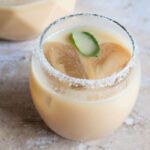For generations, communities across Africa have turned to native trees not only for food and shelter but also for natural beauty and skin care. Two standouts — marula oil (Sclerocarya birrea) and baobab oil (Adansonia digitata) — have transitioned from traditional daily use into global beauty aisles. Beyond their cosmetic appeal, these oils embody cultural heritage, ecological wisdom, and community livelihoods.
Marula Oil: Southern Africa’s Liquid Gold
The marula tree, widespread in Namibia, Botswana, South Africa, and Mozambique, has long been celebrated for its fruit, kernels, and cultural significance. Every part of the tree is used: the fruit is eaten fresh, fermented into traditional beverages, and its kernels yield the nutrient-rich oil prized for skin and hair care.
Nutrient Profile & Benefits
- Rich in oleic acid (omega-9), which provides deep hydration.
- Contains natural vitamin E and other antioxidants, known to help reduce oxidative stress on skin.
- Lightweight, fast-absorbing texture makes it suitable for both dry and oily skin.
- Noted for oxidative stability, which helps extend shelf life in formulations.
Traditional and Modern Uses
Historically, marula oil was applied to skin and hair for softness, resilience, and protection from harsh weather. It was also massaged into infants’ skin as a natural moisturizer. Today, it features in luxury serums and hair treatments worldwide — a bridge between ancient practice and modern beauty science.
Baobab Oil: The Tree of Life in a Bottle
The baobab tree, often called the “Tree of Life,” is native to regions spanning Senegal to Malawi and southern Africa. With its massive trunk and long lifespan, the baobab sustains communities by offering fruit pulp, leaves, bark fibers, and oil from its seeds.
Nutrient Profile & Benefits
- Contains omega-3, -6, and -9 fatty acids, which help calm and nourish the skin barrier.
- Provides vitamins A, D, E, and F, supporting hydration and skin elasticity.
- Lightweight and non-greasy, making it well suited for sensitive or acne-prone skin.
- Helps improve texture and supports barrier repair — though it should never be used as a sunscreen substitute.
Traditional and Modern Uses
Baobab pulp has long been consumed as a nutrient-dense food, traditionally valued for its tart flavor and vitamin content. The oil, meanwhile, was used to soften skin, condition hair, and soothe dryness. Today, it is incorporated into balms, creams, and facial oils, recognized for its gentle versatility.
Practical Guidance: Choosing & Using These Oils
- Cold-pressed, unrefined oils retain the most nutrients and natural aroma. Refined versions are milder and longer-lasting but less nutrient-dense.
- Shelf life: Unrefined oils typically last 6–12 months when stored in a cool, dark place in airtight bottles. Adding a few drops of vitamin E can help extend stability.• Usage: For facial care, start with 1–3 drops massaged into clean, damp skin. In DIY blends, use at 3–10% of the formula unless guided by a cosmetic chemist.
- Patch test first: Apply a small amount to the inner arm and wait 24–48 hours before full use.
- Allergy caution: Marula kernels are tree-nut relatives. Those with nut allergies should proceed with care. Essential oils, if added, should remain optional and in very low concentrations.
DIY Recipe: African Glow Face Serum
Ingredients
- 2 tbsp marula oil (cold-pressed, unrefined)
- 2 tbsp baobab oil (cold-pressed, unrefined)
- 3–5 drops lavender essential oil (optional, calming)
- 1–2 drops vitamin E oil (optional, as an antioxidant preservative)
Instructions
- Mix all oils in a sterilized glass dropper bottle.
- Shake gently to combine.
- Store in a cool, dark place.
- To use, apply 2–3 drops to clean skin morning and night.
Always patch test before first use. Discontinue if irritation occurs.
Sustainability & Community Impact
Both marula and baobab oils are often wild-harvested. Sustainable sourcing ensures trees and ecosystems remain healthy while providing steady income for local harvesters. In many regions, women’s cooperatives lead collection and processing, meaning ethical purchases directly support community livelihoods.Look for oils labeled as:
- Fair Trade or certified organic
- Community-sourced or direct-trade
- Suppliers with transparent sustainability policies
By choosing responsibly, consumers help preserve ecosystems while empowering rural communities.
Final Thoughts
Marula and baobab oils are more than just beauty enhancers. They carry with them stories of heritage, resilience, and sustainability. With every drop, you’re not only nourishing your skin but also connecting to centuries of traditional knowledge and, if sourced ethically, supporting the communities who have safeguarded these trees for generations.
These oils remind us that some of the most powerful skincare solutions don’t come from labs alone but from nature, culture, and shared human history.
Related Posts
-
Baobab & Marula oils: Ancient african beauty secrets with modern benefits
Across Africa’s landscapes stand two iconic trees with deep cultural and ecological significance: the baobab…
-
500 Kenyans Removed from the Wealth List
Five hundred Kenyans were dropped from the exclusive list of dollar millionaires in 2023. This…
-
Bouye: Senegal’s Creamy Baobab Juice of the Baobab People
Bouye (pronounced bwee) is more than just a drink it’s a vibrant expression of Senegal’s…


